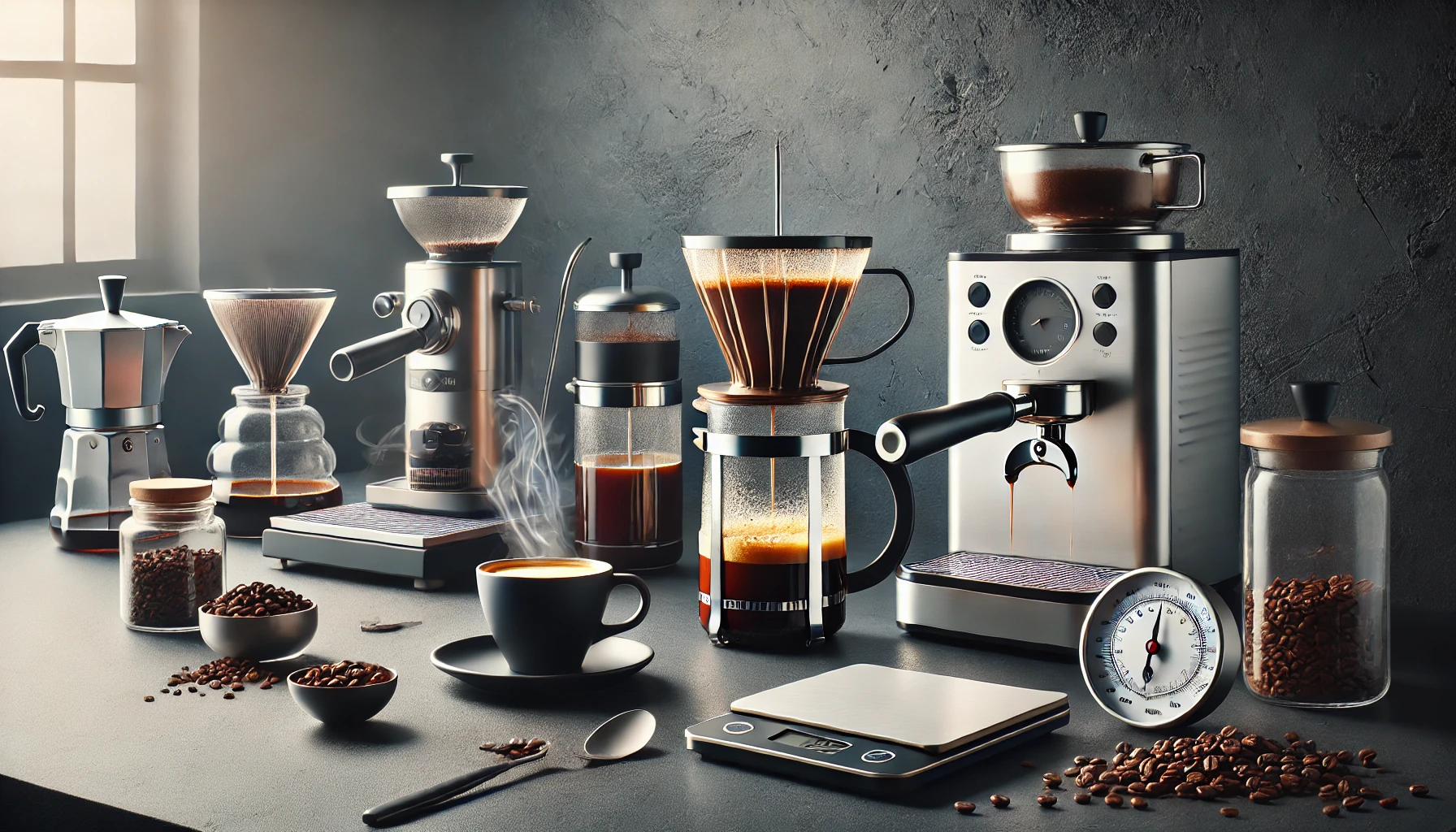Brewing coffee is a delicate balance of art and science. Each variable in the brewing process—from water temperature to grind size—plays a crucial role in determining the flavor of your cup. Understanding these variables can help you refine your technique and brew the perfect coffee every time.
The Role of Brewing Variables
Coffee brewing involves extracting soluble compounds from the grounds to create flavor. If the extraction is too low, your coffee will taste sour and weak. Over-extraction, on the other hand, results in bitterness. The goal is to achieve balanced extraction for a harmonious flavor.
Key Brewing Variables
1. Water-to-Coffee Ratio
The ratio of coffee to water directly impacts the strength and flavor of your brew.
- Standard Ratio: A commonly used ratio is 1:16 (1 gram of coffee for every 16 grams of water).
- Adjusting Ratios: For stronger coffee, reduce the water; for lighter coffee, increase it.
2. Grind Size
Grind size determines the surface area of the coffee exposed to water, affecting the extraction process.
- Coarse Grind: Best for French press and cold brew.
- Medium Grind: Ideal for drip coffee makers and pour-over.
- Fine Grind: Necessary for espresso and Aeropress.
- Impact on Flavor: Too coarse results in under-extraction (sour coffee), while too fine causes over-extraction (bitter coffee).
3. Water Temperature
The temperature of the water affects the rate at which compounds are extracted.
- Optimal Range: 195°F to 205°F (90°C to 96°C).
- Too Hot: Can over-extract, leading to bitterness.
- Too Cool: May under-extract, resulting in a flat or sour taste.
4. Brewing Time
The contact time between coffee grounds and water determines how much flavor is extracted.
- Short Times: Under-extraction with sour and weak flavors.
- Long Times: Over-extraction with bitterness.
- Ideal Times:
- French press: 4 minutes
- Pour-over: 2–4 minutes
- Espresso: 25–30 seconds
5. Water Quality
Since coffee is over 98% water, its quality significantly affects the final cup.
- Filtered Water: Removes impurities that can alter the taste.
- Mineral Content: Too many minerals can make coffee taste flat, while too few can result in poor extraction.
6. Coffee Freshness
Freshly roasted and ground coffee provides the best flavor.
- Roast Date: Use coffee within 2–4 weeks of roasting.
- Grinding: Grind just before brewing to preserve aroma and flavor.
Experimenting with Variables
Start with a Baseline Recipe
Begin with a standard coffee-to-water ratio and recommended brewing time for your method.
Adjust One Variable at a Time
Change only one factor—such as grind size or brewing time—while keeping everything else constant. This approach lets you identify how each variable affects the flavor.
Take Notes
Record your observations, including the variables used and the flavor outcome. Over time, you’ll refine your technique to match your taste preferences.
Common Flavor Issues and Their Solutions
- Sour Coffee
- Cause: Under-extraction.
- Fix: Use a finer grind, increase brewing time, or ensure water temperature is within the optimal range.
- Bitter Coffee
- Cause: Over-extraction.
- Fix: Use a coarser grind, reduce brewing time, or lower water temperature.
- Weak Coffee
- Cause: Low coffee-to-water ratio or under-extraction.
- Fix: Add more coffee or adjust grind size and brewing time.
- Overly Strong Coffee
- Cause: High coffee-to-water ratio or over-extraction.
- Fix: Use less coffee or dilute the brew.
Tools for Precision Brewing
- Kitchen Scale: Ensures consistent coffee and water measurements.
- Thermometer: Monitors water temperature for accuracy.
- Timer: Tracks brewing time to prevent over- or under-extraction.
Brewing Methods and Their Variables
French Press
- Coarse grind, 4-minute steep, and a 1:15 coffee-to-water ratio for a rich and bold cup.
Pour-Over
- Medium grind, 2–4 minutes brewing time, and precise pouring for a clean, bright flavor.
Espresso
- Fine grind, 25–30 seconds extraction, and 9 bars of pressure for a concentrated, intense shot.
Cold Brew
- Coarse grind, 12–24 hours steeping time, and a 1:8 coffee-to-water ratio for a smooth and mellow drink.
Conclusion
The science of coffee brewing is all about balance and precision. By understanding and controlling variables like grind size, water temperature, and brewing time, you can consistently craft a perfect cup tailored to your taste. Experimentation is key—enjoy the journey of discovering your ideal brew!

